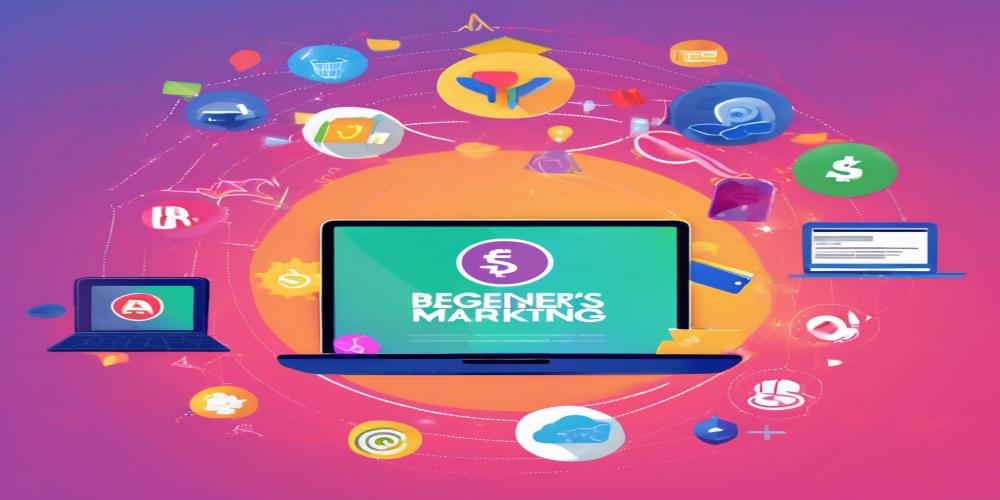The Beginner's Guide to Affiliate Marketing: How to Start Earning Today
Introduction to Affiliate Marketing
Affiliate marketing has become one of the most popular online business models today. It allows individuals (affiliates) to earn a commission by promoting another company's products or services. For businesses, it's a performance-based marketing strategy where affiliates only get paid if there their promotion leads to a sale or a lead. This win-win situation makes affiliate marketing attractive for both parties.
How Does Affiliate Marketing Work?
Affiliate marketing consists of four main participants:
- The Merchant (also known as the advertiser or brand): This is the company that creates the product or service which is being marketed to a target audience.
- The Affiliate (also known as the publisher): This individual or entity promotes the merchant's products using a unique affiliate link provided by the merchant's affiliate program.
- The Consumer: The consumer clicks on the affiliate link and makes a purchase or completes a specific action such as signing up for a newsletter.
- The Affiliate Network: An affiliate network acts as an intermediary connecting merchants and affiliates while handling the tracking of clicks and sales generated through affiliate links. However, not all affiliate programs require a network.
When a consumer makes a purchase through an affiliate's unique link, the affiliate earns a commission. The merchant profits from the sale and the consumer gets a product or service they need or want.
Why Should You Get Into Affiliate Marketing?
Affiliate marketing offers several compelling advantages:
- Low Startup Costs: Unlike traditional retail businesses, you don't need to worry about creating a product, handling inventory, or managing customer service. All you need is a way to promote products (like a blog, social media platform, or YouTube channel).
- Passive Income Potential: Once set up, affiliate marketing can generate passive income. After your initial efforts in promoting a product, you continue to earn commissions on sales made through your affiliate links.
- Flexibility: You can work from anywhere with an internet connection. This makes affiliate marketing a favorite choice for digital nomads and those seeking location independence.
- Scalability: There is no cap on how much you can earn. The more traffic you drive to affiliate offers, the greater your earning potential.
- Diverse Opportunities: There are affiliate programs for almost any niche or industry, so you can find products that align perfectly with your interests and audience.
Steps to Start Your Affiliate Marketing Journey
Ready to dive into affiliate marketing? Follow these steps to get started:
- Choose a Niche: Select a niche that you are passionate about and that has a good market demand. The more specific your niche, the easier it will be to target a particular audience. Popular niches include health and fitness, personal finance, technology, and beauty.
- Research Affiliate Programs: Look for affiliate programs that offer products or services relevant to your chosen niche. Popular affiliate networks include Amazon Associates, ShareASale, CJ affiliate, and ClickBank. You can also find direct affiliate programs offered directly by specific companies.
- Build a Platform: Your platform acts as a channel through which you can promote affiliate products. This could be a blog, a YouTube channel, a social media profile, an email list, or a combination of these. Content is key here; create high-quality, valuable content that attracts and engages your audience.
- Create Quality Content: Whether you're writing blog posts, making videos, or posting on social media, make sure your content adds value for your audience. For example, you can write product reviews, create how-to guides, or share useful tips that subtly integrate your affiliate links.
- Promote Affiliate Links: Once you've created content, incorporate your affiliate links naturally within that content. However, always disclose your affiliate relationship transparently to build trust with your audience.
- Optimize Your Traffic: Use SEO (search engine optimization) to make your content discoverable via search engines. Additionally, leverage social media and email marketing to drive traffic to your content.
- Analyze and Optimize: Use analytics to track which products perform well and which marketing strategies are most effective. Continuously test and tweak your content and promotional strategies to improve conversions.
Effective Strategies for Affiliate Marketing Success
Success in affiliate marketing requires creativity and strategy. Here are some proven strategies:
- Content Marketing: Creating high-quality blog posts, videos, or podcast episodes dedicated to solving problems your audience has can make your affiliate links part of the solution.
- Product Reviews and Comparisons: People often seek reviews before making a purchase. Write in-depth product reviews and comparison to help your audience make informed decisions.
- Email Marketing: Building an email list allows you to nurture a relationship with your audience. Send newsletters with valuable content and include affiliate promotions where relevant.
- Social Media Marketing: Use platforms like Facebook, Instagram, Twitter, or Pinterest to share your content and affiliate links. Be sure to follow platform-specific rules regarding affiliate links.
- Paid Advertising: Run ads on Google AdWords or social media platforms to drive targeted traffic to your content where affiliate links are embedded. However, make sure that the returns justify the ad spend.
Common Mistakes Beginners Make
Newcomers often make several common mistakes when diving into affiliate marketing. Here’s how to avoid them:
- Choosing the Wrong Niche: Picking a niche solely based on potential earnings rather than passion can lead to burnout. Select a niche you are genuinely interested in.
- Promoting Too Many Products: Instead of trying to promote every affiliate product you come across, focus on a few that you genuinely believe in.
- Ignoring SEO: Many beginners forget that organic traffic from search engines is a powerful way to get highly targeted visitors.
- Not Building an Email List: An email list is a valuable asset as it allows you to directly reach your audience anytime without relying solely on social media algorithms.
- Failing to Disclose Affiliate Links: Failing to disclose that you are using affiliate links can harm your credibility. Always be transparent with your audience about affiliate partnerships.
Conclusion
Affiliate marketing offers a fantastic opportunity for anyone looking to make money online. While it requires effort and patience, the potential for earning passive income makes it a worthwhile endeavor. By choosing the right niche, creating quality content, and effectively optimizing your promotional strategies, you can build a successful affiliate marketing business.
Remember that affiliate marketing is not a get-rich-quick scheme. It takes time to build an audience and gain their trust. But once you do, the rewards can be significant. Ready to get started? Pick a niche you love, join reputable affiliate programs, and start creating valuable content today!










